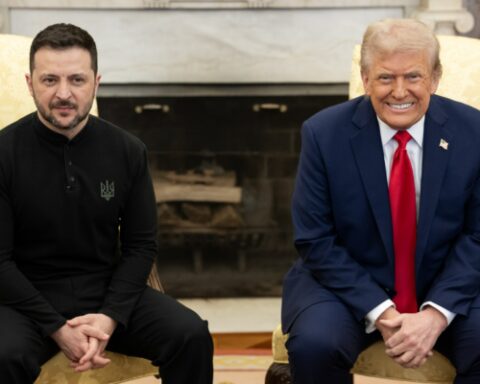President Vladimir Putin reportedly warned on Friday that any foreign troops deployed to Ukraine would be considered legitimate targets for Russian strikes, setting a hard line a day after European and U.S. officials met in Paris to discuss security guarantees, including the possibility of sending thousands of Western soldiers to support Kyiv.
“We’ll proceed from the assumption that these are legitimate targets for strikes,” Mr. Putin said at the Eastern Economic Forum, framing the Kremlin’s stance in stark terms. He expressed skepticism that any high-level talks with Ukraine could resolve the conflict, asserting that “it will be practically impossible to reach an agreement with the Ukrainian side on key issues. Even if there is political will—which I doubt—there are legal and technical difficulties.”
The announcement complicates efforts by President Donald Trump, whose earlier summit with Mr. Putin in Alaska had been intended to create momentum for peace.
A series of deadlines set by Mr. Trump for progress on negotiations have since passed with no substantive results.
Mr. Putin’s comments followed a trip to China, where he met with leaders from Beijing and New Delhi at a regional summit and attended a military parade meant to showcase alignment among nations the West views as adversaries.
On Truth Social, Mr. Trump quipped, “Looks like we’ve lost India and Russia to deepest, darkest, China. May they have a long and prosperous future together!”
European leaders have pressed for direct meetings between Mr. Putin and Ukrainian President Volodymyr Zelensky, and discussions are underway for a potential peacekeeping mission in Ukraine contingent on a cease-fire.
Mr. Putin, however, suggested Moscow as the only appropriate location for negotiations, promising “a 100% guarantee” of security and favorable conditions for a Ukrainian delegation.
Kyiv, while open to talks, rejected the Moscow venue, accusing Russia of deliberately delaying negotiations. “If you want a meeting not to happen, then you invite me to Moscow,” Mr. Zelensky said, referencing past Russian attempts to destabilize his leadership.
Mr. Putin reiterated longstanding Russian positions on Ukraine’s aspirations for NATO membership and its efforts to curtail Russian influence, while distinguishing between NATO and European Union ambitions. “The security of one country cannot be arranged at the expense of the security of another,” he said, suggesting that Western military buildup in Ukraine represents a direct threat.
Since Trump’s inauguration, Mr. Putin has navigated a careful balance, agreeing in principle to proposals on Ukraine while largely ignoring them in practice. During a U.S.-brokered truce in March, he expressed support for a pause in hostilities, contingent on resolving what he called the “root causes” of the conflict.
Mr. Putin’s latest statements signal a possible pivot away from cautious diplomacy, raising questions about the feasibility of the peace initiatives championed by the Trump administration.
In a conflict that has already seen repeated broken promises by Moscow, Kyiv continues to press for Western security guarantees to prevent future aggression, even as Russia maintains its maximalist stance.
[READ MORE: Mexican Cartels Tighten Grip on Ecuador, Turning Once-Peaceful Nation into Global Drug Battleground]







